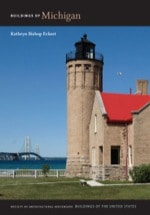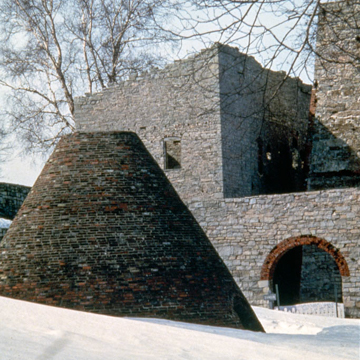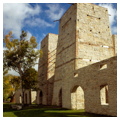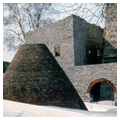The Jackson Iron Company established Fayette as a company town in 1867 to support the operation of a new charcoal iron blast furnace complex on the edge of Snail Shell Harbor. The village grew to about 500 residents in the mid-1870s then gradually tapered off in population during the 1880s, reflecting the declining fortunes of the charcoal iron industry in general. After the company closed its furnaces in December 1890, most of the remaining residents left to seek work elsewhere. During the next several decades, Fayette was home to a small group of commercial fishermen and several failed summer resorts. The State of Michigan purchased the all-but-vacant townsite and surrounding land in 1959. It has since developed the land as a state park combining unique historical and scenic attractions.
The Jackson Iron Company viewed construction of Fayette as a necessary but secondary aspect of its smelting operation at Snail Shell Harbor. It therefore made no particular effort to create a well-built or aesthetically pleasing community. Local woods and limestone from the adjacent bluff, sparingly augmented by imported brick, were used for both the residential and the industrial and commercial buildings. The lack of ornamentation further underscores the company's utilitarian perception of Fayette's buildings.
The layout of the village emphasizes the centrality of iron smelting to Fayette's existence. Most visitors arrived in Fayette by boat (or across the ice in winter) and they were greeted by the sight of two blast furnaces looming up over the water as they entered the inner harbor. The stacks were flanked by charcoal kilns and storage sheds. Barns, workshops, and offices stood behind the furnaces. A hotel, a livery stable, and a very few shops were adjacent to the industrial area. Housing extended to the south and northwest from the economic and geographic center of the village. The company superintendent's house was not only the largest in town, it also had a commanding view of the harbor and stacks. Moreover, it was located safely upwind of the smoke and smells of the furnace complex.







